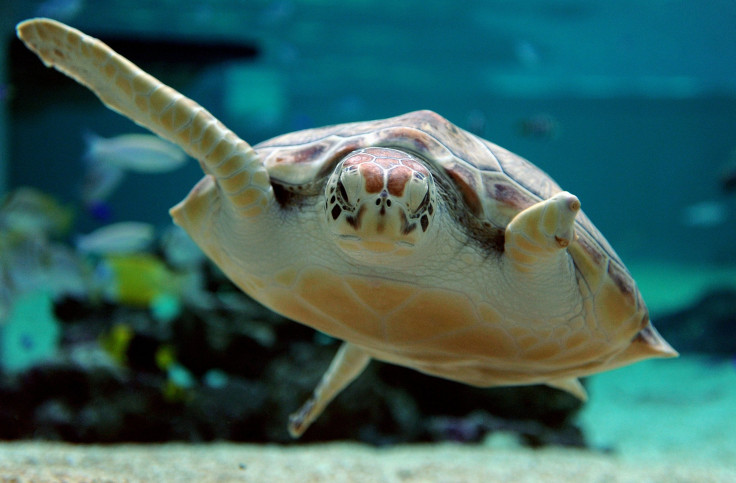Climate Change Could Turn Great Barrier Reef Turtles All Female

A warming earth is causing a turtle population in Australia’s Great Barrier Reef to become increasingly female, according to research published Monday.
The paper warned that climate change could threaten the green sea turtle’s future. Temperatures during incubation affect which sex the sea turtles become, and as temperatures rise globally the turtles could become entirely female. The turtle is already considered endangered.
The paper called “Environmental Warming and Feminization of One of the Largest Sea Turtle Populations in the World” was published in the scientific journal Current Biology. The research was conducted by scientists from National Oceanic and Atmospheric Administration (NOAA), California State University and Worldwide Fund for Nature Australia.
The research examined two genetically distinct groups of turtles, called rookeries, that live in and around the Great Barrier Reef. The scientists found that a group of turtles in the cooler southern part of the reef were 65 to 69 percent female while a group from the water northern part of the reef skewed much more female. Researchers found that adults were 86.8 percent female while juvenile and sub-adult turtles were more than 99 percent female in the northern population.
Scientists believe the trend toward feminization in the green sea turtles had been happening for at least 20 years. In addition to affecting sex outcome of the turtles, higher temperatures also increase mortality rate amounts turtle offspring.
“While we can hope there might be some cooler years to produce a few more males, overall we can expect the temperatures to increase,” lead author Michael Jensen of NOAA told the Guardian. “Knowing what the sex ratios in the adult breeding population are today, and what they might look like five, 10 and 20 years from now when these young turtles grow up and become adults, is going to be incredibly valuable.”
Jensen also called the findings “a bit alarming.”
World Wildlife Fund Australia head Dermot O’Gorman told the Guardian Australia that climate change was taking a silent toll on animals.
“This is an invisible change. We can’t see the impact it’s having on a turtle population until a study like this shows some long-term trends,” said O’Gorman.
O’Gorman said that urgent action was needed, but that conservationists were experimenting with mitigation measures such as shade on the beaches where the turtles lay their eggs.
© Copyright IBTimes 2024. All rights reserved.




















